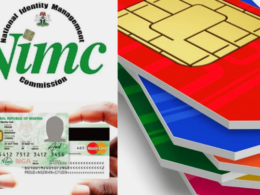Kenyan conversational commerce startup Sukhiba has rebranded to Flowcart, signaling its evolution from a WhatsApp-based chat support tool into what it calls a comprehensive AI-powered revenue channel designed for the messaging age.
The rebrand reflects the company’s strategic pivot toward conversational commerce, as businesses increasingly recognize WhatsApp and similar messaging platforms as critical sales channels rather than just customer service touchpoints.
From Chat Support to Revenue Engine
Founded in 2021 by Ananth Raj Gudipati and Abhinav Reddy, the platform was initially built to help medium and large enterprises extend their sales and customer retention capabilities through WhatsApp Business. The company’s services span sales automation, marketing campaigns, customer service, and integrated payments—all orchestrated within WhatsApp’s infrastructure.
“We built Sukhiba with a clear goal: to enable commerce on WhatsApp,” said Ananth Gudipati, CEO and co-founder of Flowcart. “As we grew, we realized that driving revenue requires more than just chat. Businesses need smarter automation, seamless customer journeys, and tools that turn every conversation into a conversion.”
The rebrand to Flowcart represents what Gudipati calls “the evolution of that vision”—a platform that’s “more refined, more powerful, and built for the future of commerce in chat.”
Proven Traction and Growth
The timing of the rebrand coincides with significant business momentum. Flowcart now serves over 300 brands across various sectors, including notable clients like L’Oréal, Safaricom’s Masoko marketplace, Spar Supermarkets Oman, fashion retailer UNCOVER, and Grain Industries Limited.
This client roster demonstrates the platform’s ability to scale across different industries and market types, from multinational beauty brands to local African retailers and Middle Eastern supermarket chains.
The company’s growth trajectory was validated last year when it completed a $1.55 million seed extension round, specifically earmarked for expansion across Africa and other emerging markets where mobile-first commerce is accelerating.
Strategic Market Expansion
Flowcart is now expanding beyond its initial markets of Kenya and South Africa into Nigeria, India, and the UAE—strategic choices based on high WhatsApp usage rates and accelerating mobile-first buying behaviors in these regions.
This geographic expansion strategy makes sense given WhatsApp’s dominance in emerging markets. In countries like Nigeria and India, WhatsApp serves as more than just a messaging app—it’s often the primary digital touchpoint between businesses and customers, making it a natural foundation for conversational commerce.
The UAE expansion suggests Flowcart sees opportunity beyond traditional emerging markets, targeting the Gulf region where high smartphone penetration and evolving retail landscapes create demand for innovative commerce solutions.
AI-Powered Differentiation
The rebrand emphasizes Flowcart’s integration of artificial intelligence to automate and optimize conversational commerce workflows. This AI focus addresses a key challenge in WhatsApp-based commerce: scaling personalized conversations without proportionally increasing human resources.
The platform’s AI capabilities likely include automated response systems, customer journey optimization, lead qualification, and conversion funnel management—all designed to transform casual WhatsApp interactions into structured sales processes.
This approach positions Flowcart within the broader trend of AI-powered business automation, but with a specific focus on messaging platforms that dominate emerging market communications.
Market Context and Competition
Flowcart operates in the growing conversational commerce space, where companies like Intercom, Drift, and Zendesk have established significant presences in developed markets. However, the WhatsApp-specific focus gives Flowcart advantages in markets where WhatsApp usage far exceeds other business communication platforms.
The company faces competition from other WhatsApp Business API providers and conversational commerce platforms, but its combination of local market knowledge, proven enterprise client base, and AI integration creates differentiation.
In Africa specifically, the conversational commerce space is still relatively nascent, giving Flowcart potential first-mover advantages as more brands recognize messaging platforms as legitimate sales channels rather than just support tools.
Industry Implications
The rebrand reflects broader shifts in how businesses approach customer engagement in emerging markets. Traditional e-commerce models that work in developed markets often struggle with infrastructure, payment, and trust challenges in Africa and similar regions.
Conversational commerce through WhatsApp addresses several of these challenges:
- Lower barrier to entry: No need for customers to download new apps or create accounts
- Familiar interface: Leverages existing WhatsApp usage patterns
- Trust building: Personal conversation formats can build confidence in online transactions
- Integrated payments: WhatsApp’s payment features reduce friction in emerging market transactions
Looking Forward
Flowcart’s evolution from Sukhiba represents more than just a rebrand—it signals the maturation of conversational commerce as a legitimate business channel in emerging markets. The company’s ability to serve major brands like L’Oréal while expanding into new geographic markets suggests strong product-market fit.
The success of this rebrand and expansion will likely influence how other African startups position themselves in the global market, particularly those building solutions that leverage widely-adopted consumer platforms for business applications.
As WhatsApp continues expanding its business features and AI integration becomes more sophisticated, platforms like Flowcart are positioned to benefit from these technological improvements while maintaining their local market expertise and established client relationships.
The key test will be whether Flowcart can successfully scale its personalized approach to conversational commerce across diverse markets while maintaining the quality and customization that has attracted its current enterprise client base.












